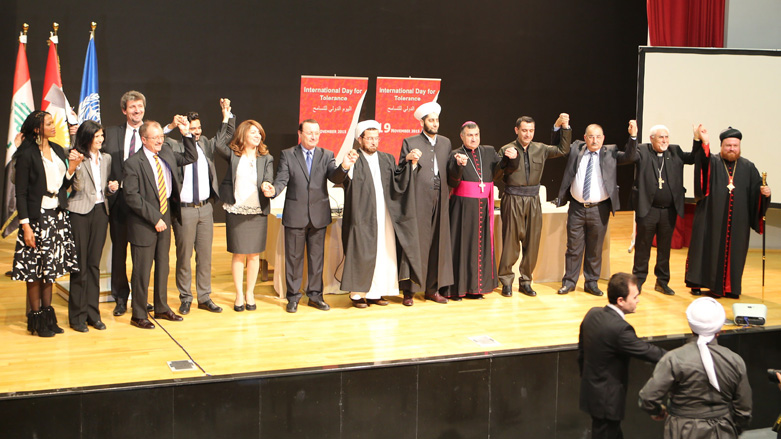Barzani on International Tolerance Day: Coexistence a contributor to Kurdistan’s success

ERBIL (Kurdistan 24) – Former President of the Kurdistan Region, Masoud Barzani, stated that the Region would continue to be a center of coexistence in the Middle East, welcoming to all ethnic and religious groups, while marking the International Day for Tolerance.
In a statement released on Friday, Barzani, who is currently the President of the leading Kurdistan Democratic Party (KDP), affirmed that tolerance, coexistence, and the acceptance of one another are some of the main principles of democracy and a measure of development and progress.
“The main factor of the Kurdistan Region’s success and development is the sense of coexistence and tolerance that exists here, which has given beautiful and civilized characteristics to the Kurdistan Region,” Barzani said.
He added that tolerance, peace, and coexistence have been a staple of the people of the Kurdistan Region’s culture for “thousands of years.”
“There have been many attempts to destroy this quality, but it remains unaffected,” he noted.
“The Kurdistan Region will always be a center of coexistence for all ethnic and religious groups.”
Barzani also asserted that all the religions advocate the strengthening and deepening of coexistence and tolerance.
“Therefore, cultural and educational institutions should award more importance to this subject and encourage” those principles to strengthen pluralism in the region.
The Kurdistan Region, considered an oasis of stability and tranquility in the Middle East, has earned the reputation of being a haven for all persecuted minorities who have been displaced by the conflict in Iraq and neighboring Syria.
Since the Islamic State’s mid-2014 emergence and targeting of ethnic and religious groups, Kurdistan has provided shelter for millions of displaced persons.
Christians, in particular, have been subject to heightened violence since the fall of the former Iraqi dictatorship in 2003, prompting many of them to flee to the Kurdistan Region while others sought refuge in Europe and North America.
Unlike many regional countries, the Kurdistan Regional Government (KRG) has representatives of all seven religious groups living in the area, including Christians, Jews, Ezidis, and Zoroastrians.
Editing by Nadia Riva
